Choosing the Right Conveyor: Fixed vs. Expanding Conveyors
Date Posted:23 May 2024
The choice between fixed and expanding conveyors depends on the specific needs and priorities of your business. Fixed conveyors offer stability, reliability, and high throughput, making them ideal for continuous production environments.
Conveyors are the unsung heroes of many industries, silently moving goods along production lines and distribution centers. However, when it comes to selecting the right conveyor system, businesses are often faced with a choice between fixed and expanding conveyors. Each type offers distinct advantages and considerations, making the decision a critical one for operational efficiency. In this blog, we'll explore the differences between fixed and expanding conveyors, helping you make an informed choice for your business.
Understanding Fixed Conveyors
Fixed conveyors are the workhorses of the industry, providing a stable and reliable means of transporting goods from one point to another. These conveyors are stationary, with a set length and configuration. Fixed conveyors are ideal for applications where a constant flow of goods is required, such as in manufacturing plants, warehouses, and distribution centers. They offer high throughput and are well-suited for handling heavy loads and continuous production processes.
Exploring Expanding Conveyors
Expanding conveyors, on the other hand, offer flexibility and adaptability that fixed conveyors cannot match. Also known as telescopic conveyors or extendable conveyors, these systems feature a retractable mechanism that allows them to expand or contract in length. This versatility makes expanding conveyors ideal for applications with varying space constraints or fluctuating production demands. They can be easily adjusted to accommodate changes in workflow or layout, making them a popular choice in industries such as logistics, e-commerce, and parcel handling.
Advantages of Fixed Conveyors
Stability: Fixed conveyors provide a stable platform for transporting goods, minimizing the risk of jams or disruptions in the production process.
Reliability: With a fixed configuration, these conveyors require minimal maintenance and are less prone to mechanical failures or breakdowns.
High throughput: Fixed conveyors are capable of handling high volumes of goods efficiently, making them ideal for continuous production environments.
Benefits of Expanding Conveyors
Flexibility: Expanding conveyors can be easily adjusted to accommodate changes in production volume or space constraints, providing greater flexibility in workflow planning.
Space-saving: The retractable design of expanding conveyors allows them to be compacted when not in use, maximizing floor space and storage efficiency.
Scalability: Expanding conveyors can be expanded or contracted to meet evolving business needs, making them a versatile investment that can grow with your operations.
Considerations for Choosing Between Fixed and Expanding Conveyors
Production volume: Fixed conveyors are better suited for high-volume operations, while expanding conveyors offer greater flexibility for fluctuating production demands.
Space availability: If space is limited, an expanding conveyor may be the more practical choice, as it can be adjusted to fit within tight confines.
Budget constraints: While fixed conveyors may have lower initial costs, expanding conveyors offer long-term cost savings through their adaptability and scalability.
Cost Considerations
While fixed conveyors may have a lower initial cost, businesses should consider the long-term implications of their investment. Expanding conveyors may offer greater flexibility and scalability, reducing the need for costly upgrades or replacements down the line. Additionally, the space-saving design of expanding conveyors can result in savings on storage and floor space over time.
The choice between fixed and expanding conveyors depends on the specific needs and priorities of your business. Fixed conveyors offer stability, reliability, and high throughput, making them ideal for continuous production environments. Expanding conveyors, on the other hand, provide flexibility, space-saving design, and scalability, making them well-suited for dynamic or space-constrained operations. By carefully evaluating your operational requirements and considering factors such as production volume, space availability, and budget constraints, you can select the conveyor system that best meets your needs and drives efficiency in your business.
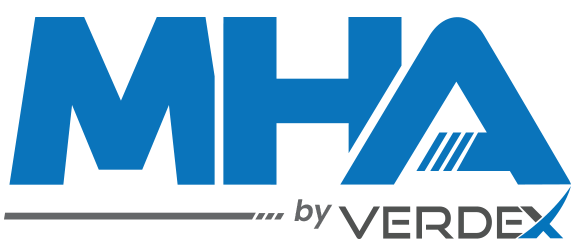


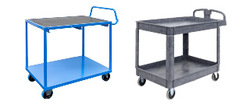
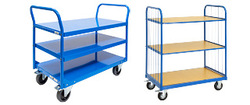
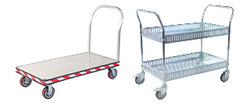
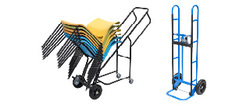
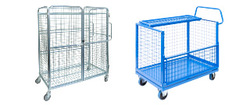
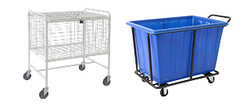
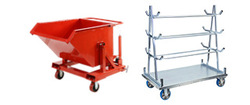
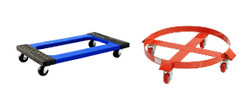
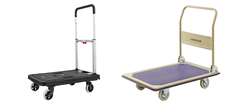
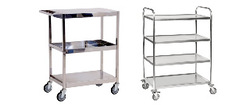
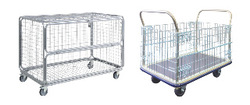
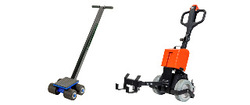
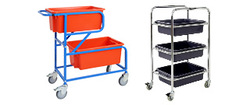
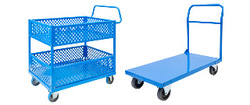
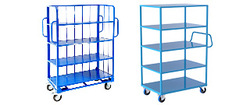
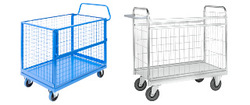
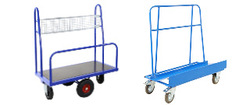
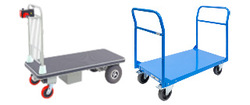
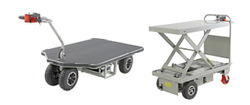
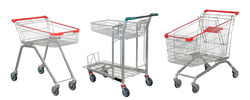
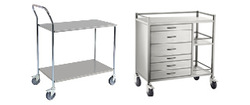
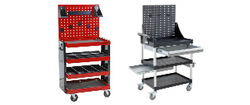
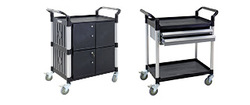
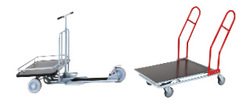
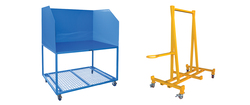



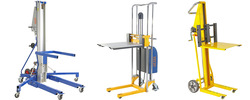



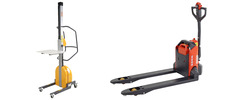
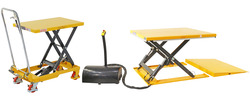
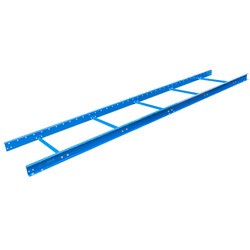
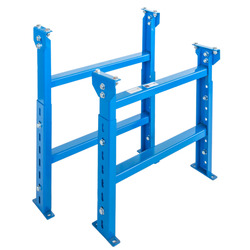
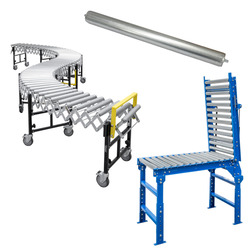
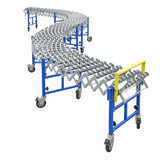


















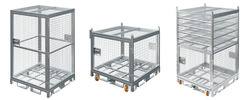

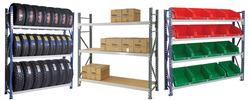
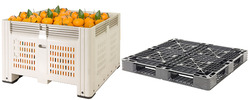
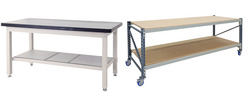
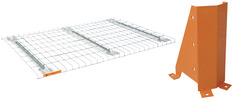
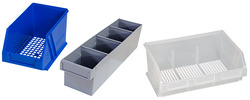

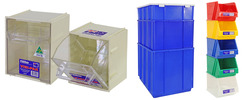

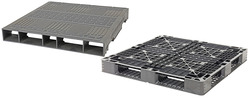

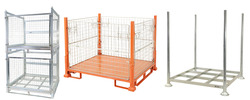
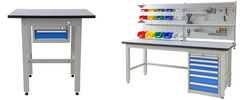
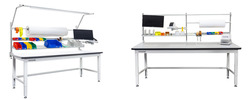


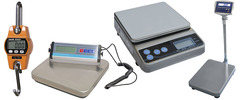



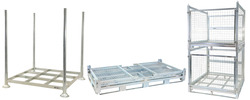
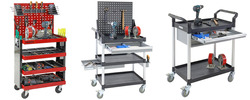
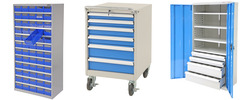

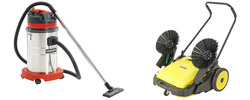











 Trolleys / Hand Trucks
Trolleys / Hand Trucks 2 Tier Trolleys
2 Tier Trolleys 3 Tier Trolleys
3 Tier Trolleys Aluminium Trolleys
Aluminium Trolleys Appliance & Hand Trucks
Appliance & Hand Trucks Cage Trolleys
Cage Trolleys Cleaning Carts & Trolleys
Cleaning Carts & Trolleys Construction Trolleys
Construction Trolleys Dollies
Dollies Foldable Trolleys
Foldable Trolleys Hospital Trolleys
Hospital Trolleys Laundry/Linen Trolleys
Laundry/Linen Trolleys Load Skates & Tow Tugs
Load Skates & Tow Tugs Mail / Office Trolleys
Mail / Office Trolleys Multi Purpose Trolleys
Multi Purpose Trolleys Multi-Tier Shelf Trolleys
Multi-Tier Shelf Trolleys Order Picking Trolleys
Order Picking Trolleys Panel Cart Trolleys
Panel Cart Trolleys Platform Trolleys
Platform Trolleys Powered Trolleys
Powered Trolleys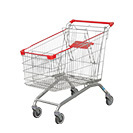 Shopping Trolleys
Shopping Trolleys Stainless Steel Trolleys
Stainless Steel Trolleys Tool Trolleys
Tool Trolleys Utility Carts
Utility Carts Warehouse Trolleys
Warehouse Trolleys Custom Trolleys
Custom Trolleys Lifting Equipment
Lifting Equipment Forklift Attachments
Forklift Attachments Jib Attachments
Jib Attachments Lifting Hoists & Pallet Hooks
Lifting Hoists & Pallet Hooks Manual Stackers & Lifters
Manual Stackers & Lifters Pallet Jacks
Pallet Jacks Pallet Lifters
Pallet Lifters Pallet Rotators & Dispenser
Pallet Rotators & Dispenser Powered Pallet Trucks & Electric Lifters
Powered Pallet Trucks & Electric Lifters Scissor Lift Trolleys and Tables
Scissor Lift Trolleys and Tables Conveyor Equipment
Conveyor Equipment Conveyor Frames
Conveyor Frames Conveyor Stands
Conveyor Stands Roller Conveyors
Roller Conveyors Skate Wheel Conveyors
Skate Wheel Conveyors Access Equipment
Access Equipment Container & Yard Ramps
Container & Yard Ramps Step Stools & Ladders
Step Stools & Ladders Work Platforms & Crane Cages
Work Platforms & Crane Cages Drum Handling
Drum Handling Drum Storage & Bunding
Drum Storage & Bunding Drum Trolleys & Lifters
Drum Trolleys & Lifters Forklift Drum Handling
Forklift Drum Handling Containment & Spillage
Containment & Spillage Aerosol Cans Storage Cages
Aerosol Cans Storage Cages Bunded Pallets & Storage
Bunded Pallets & Storage Corrosive Goods Storage Cabinets
Corrosive Goods Storage Cabinets Flammable Liquid Cabinets
Flammable Liquid Cabinets Forklift Gas Storage Cages
Forklift Gas Storage Cages Gas Cylinder Storage
Gas Cylinder Storage Site Storage
Site Storage Spill Kits
Spill Kits Stillage Cages
Stillage Cages Waste Handling
Waste Handling Bin Lifters & Tippers
Bin Lifters & Tippers Plastic Waste Bins and Carts
Plastic Waste Bins and Carts Steel Waste and Tipping Bins
Steel Waste and Tipping Bins Storage Equipment
Storage Equipment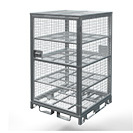 750 Series Cage Configurations
750 Series Cage Configurations Heavy Duty Cabinets & Benches
Heavy Duty Cabinets & Benches Heavy Duty Shelving
Heavy Duty Shelving Mega Bins & Pallets
Mega Bins & Pallets Packing Benches
Packing Benches Pallet Racking Accessories
Pallet Racking Accessories Parts Trays & Stor-Pak Bins
Parts Trays & Stor-Pak Bins Pegboard & Louvre Panels
Pegboard & Louvre Panels Plastic Bins
Plastic Bins Plastic Handling Solutions Bins
Plastic Handling Solutions Bins Plastic Pallets
Plastic Pallets Stack & Nest Bins
Stack & Nest Bins Storage Cages
Storage Cages Workplace Equipment
Workplace Equipment Workbenches
Workbenches Modular Workbenches
Modular Workbenches Electric Height-Adjustable Workbenches
Electric Height-Adjustable Workbenches Floor Matting
Floor Matting Industrial Weighing Scales
Industrial Weighing Scales Pallet Wrapping & Packaging Machinery
Pallet Wrapping & Packaging Machinery Ramps
Ramps Stationery Cupboards
Stationery Cupboards Storage and Stillage Cages
Storage and Stillage Cages Tool Trolleys
Tool Trolleys Tooling Cabinets
Tooling Cabinets Wheelie Bins
Wheelie Bins Workshop Equipment
Workshop Equipment Safety Equipment
Safety Equipment Gloves and PPE
Gloves and PPE Pallet Rack Post Protectors
Pallet Rack Post Protectors Safety Barriers & Bollards
Safety Barriers & Bollards Safety Knives & Cutters
Safety Knives & Cutters Signs and Traffic Supplies
Signs and Traffic Supplies Tool & First Aid Boxes
Tool & First Aid Boxes Construction Equipment
Construction Equipment Concrete Equipment
Concrete Equipment General Site Equipment
General Site Equipment Lifting Equipment
Lifting Equipment Site Storage
Site Storage Waste
Waste 










